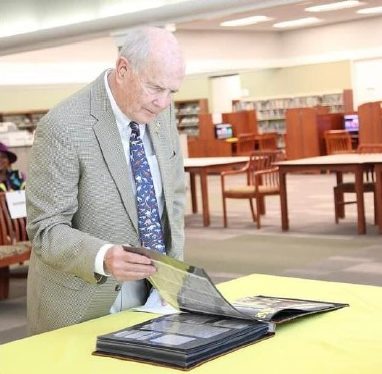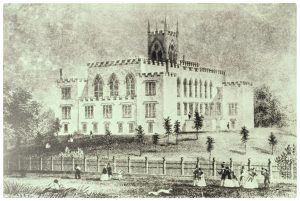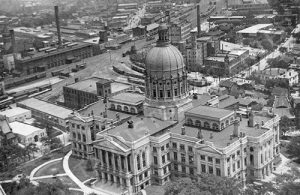Not too long ago, the staff of Newton County Library System (NCLS) were faced with an interesting conundrum: how do you recognize a wonderful library trustee who has served on your library’s board for over 53 years?
The library staff and members of the library board were looking for a very special way to show their appreciation to Mr. Frank B. Turner, Sr. for his dedication to the library community of Covington, Georgia.
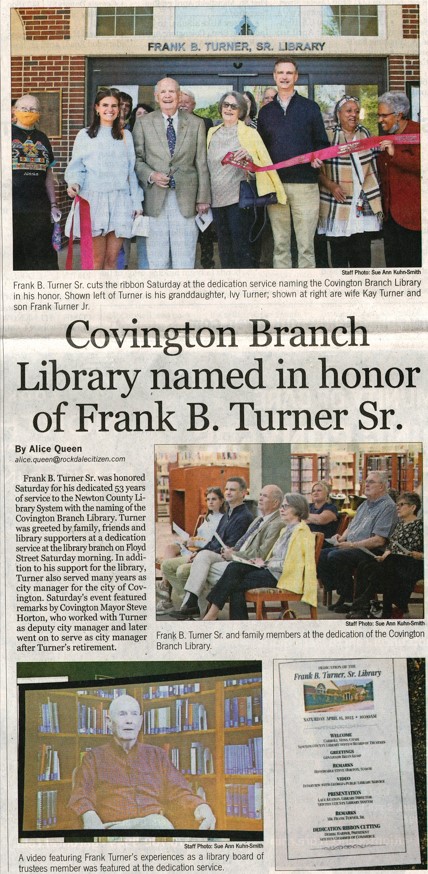
A native of Covington who served as the city manager of Covington from 1970-2006, Frank was appointed to the NCLS library board in 1970, to represent the city of Covington. The board voted to dedicate and rename the Covington branch of the Newton County Library System the Frank B. Turner, Sr. Library in honor of Mr. Turner. A library dedication ceremony was held in April 2023 to rename but there was still something missing…
We were all familiar with Mr. Turner’s deep knowledge of Newton County’s local history and his lifelong love for the library. Mr. Turner has ties to existing DLG projects: notably the Turner Scrapbook Collection, available in the DLG, comprised of historic photographs of Newton County taken by his father, Nathaniel S. Turner, Jr.
The NCLS professional staff ultimately realized the Digital Library of Georgia (DLG) could provide the perfect answer to our question, and decided to use DLG resources to create a “History of Newton County Library” scrapbook for Frank Turner’s personal collection.
We began by searching for ALL the available Newton County digital newspapers on the Georgia Historic Newspapers site for any and all references to the word “library” from 1835-1942.
What started out as simple project quickly became a fun and interesting journey of discovery for the library staff. We uncovered not just local library history, but also a glimpse into the cultural, political and social aspects of the various decades, and how library service evolved throughout those times.
NCLS staff were able to find documentation that revealed our original library started in 1898, rather than 1910 as initially believed. There were also fascinating history tidbits, beginning with finding a “library home” and continuing to follow the library’s history with building renovations, popular books of the times, meeting local library leaders, and very creative fundraising events for the library. We assembled hundreds of articles in chronological order, organized them by decades, then added them to the scrapbook along with a surprise find: the “birth announcement” of our very special Board member, Frank B. Turner, Sr.
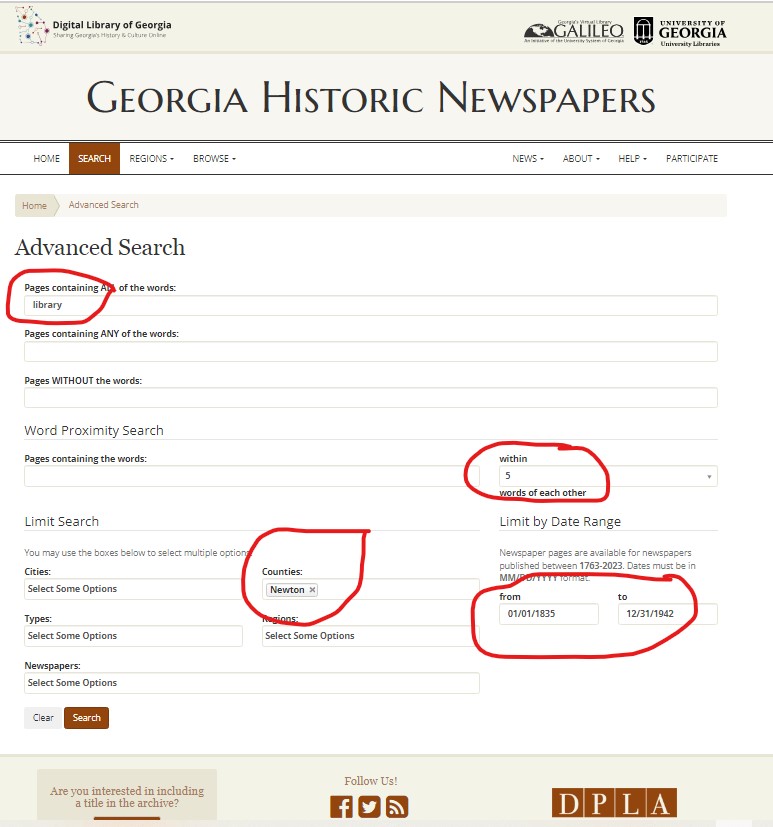
Mr. Turner was so delighted with his library history scrapbook, that he successfully advocated for additional funding to continue working with the Digital Library of Georgia to continue digitizing Newton County newspapers from 1942 to 1969.
So, as the last page of scrapbook says: “To Be Continued.”
–Lace Keaton,
Director, Newton County Library System
Image credits:
Featured image (at top of blog post): Frank B. Turner, Sr. looking through the scrapbook created for him by Newton County Library System staff (courtesy of the Newton County Library System).
Article image (inside blog post): Newspaper clipping of an April 2023 Rockdale Newton Citizen article (by Alice Queen) covering the naming ceremony of the Frank B. Turner, Sr. Library.

